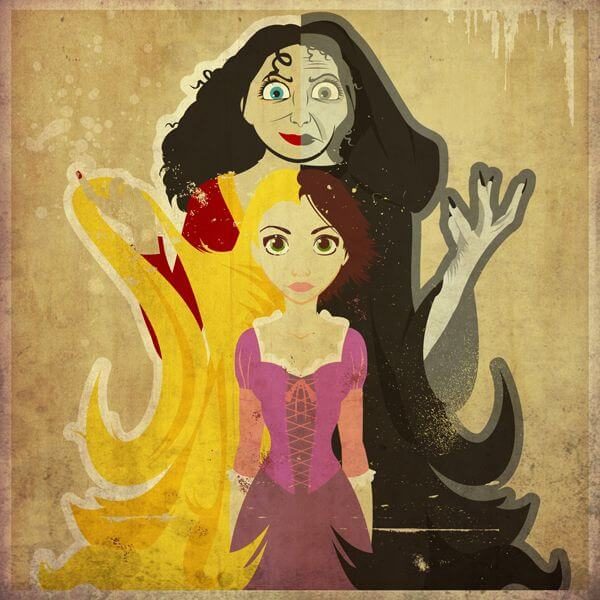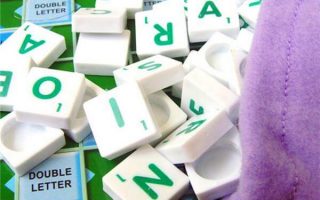Co-dependent behavior cripples both the Abuser and the victim. It is an extreme form of codependency, clinging to the notion that in order to keep people in a person’s life that a toxic thinker must manufacture crisis after crisis and extreme chaos for their friends and family on an ongoing basis simply to ensure their attention-seeking needs are met.
When a person is a narcissistic thinker but they have the biological capacity to experience a more complex range of human emotion, many times they will find it to their “advantage” to cling to other people.
This is the root of co-dependency as it relates to competitive thinking — believing that in order to be successful in life one must rise above the pack, but in order for it to matter one must do so both with and for an audience.
People with Dependent Personality Disorder have the capacity to be loving. That is, to everyone BUT their preferred scapegoat targets. Most oftentimes an adult child or disadvantaged “friend” becomes the abuse target for a dependent controller.
The word dependent misleads in the case of Dependent Personality Disorder. One hears dependent and thinks “Weak” or NEEDY”. In the case of a Dependent person with a personality disorder, they tend to rule the roost with an iron fist — one grasping at the shirt collar of the neck on the person they are desperately seeking to control, unappreciatively.
The following are a list of fast facts about DPD presented by PsychCentral, a psychology website known for sharing scientifically based self-help and mental health-themed articles. Regarding the diagnosis of people with Dependent Personality Disorder, they shared the following insights — noting that many of the symptoms begin to come on in individuals after the age of 40.
They write:
Symptoms of Dependent Personality Disorder
Dependent personality disorder is characterized by a pervasive fear that leads to “clinging behavior” and usually manifests itself by early adulthood. It includes a majority of the following symptoms:
- Has difficulty making everyday decisions without an excessive amount of advice and reassurance from others
- Needs others to assume responsibility for most major areas of his or her life
- Has difficulty expressing disagreement with others because of fear of loss of support or approval
- Has difficulty initiating projects or doing things on his or her own (because of a lack of self-confidence in judgment or abilities rather than a lack of motivation or energy)
- Goes to excessive lengths to obtain nurturance and support from others, to the point of volunteering to do things that are unpleasant
- Feels uncomfortable or helpless when alone because of exaggerated fears of being unable to care for himself or herself
- Urgently seeks another relationship as a source of care and support when a close relationship ends
- Is unrealistically preoccupied with fears of being left to take care of himself or herself
Because personality disorders describe long-standing and enduring patterns of behavior, they are most often diagnosed in adulthood. It is uncommon for them to be diagnosed in childhood or adolescence, because a child or teen is under constant development, personality changes and maturation. However, if it is diagnosed in a child or teen, the features must have been present for at least 1 year.
Dependent personality disorder is diagnosed in between 0.5 and 0.6 percent of the general population.
Like most personality disorders, dependent personality disorder typically will decrease in intensity with age, with many people experiencing few of the most extreme symptoms by the time they are in the 40s or 50s.
If you or a person you know are being victimized unknowingly by an elderly narcissistic thinker, a toxic spouse, or a toxic senior citizen parent, consider sharing this article with them lovingly with a note that there is a chance for victim recovery. There are also coping methods that a person with DPD can use to help lessen anxiety, as well as rituals that can be enacted with friends and family members that collaboratively can help ease a person who is having abandonment-related anxiety issues permeate their everyday consciousness.
People with Dependent Personality Disorder very often don’t even realize they have it. That’s why, as Narcissistic Abuse recovery advocates, are not quick to condemn either them (for having issues) or their more loving friends and family members for striving so patiently and tirelessly to help them.
When a person develops DPD, yes — they do tend to exhibit extreme levels of narcissistic behaviors. But the key thing to remember, in the case of dealing with or treating them, is they are not motivated by the same need to manipulate others for personal gain in a way that is malevolent.
In all reality, when a person with Dependent Personality Disorder does something like call and demand their 50 plus-year-old child leave work to come home to their house immediately to get a can of soup off a top shelf where the mentally challenged person themselves insisted it be put — knowing full well that it SHOULD have been put on a lower shelf so they could reach the can without help — they show an appalling lack of concern and consideration for the person’s life whom they call. But their reason for doing so is not to menace or get their adult child fired.
It is their less than polite way of refusing to face up to the very real fact that what they are having is an ANXIETY ATTACK. Their fear of being alone during any period of non-disclosed crisis is simply not the same motivator as a Narcissist demanding special attention.
Granted, the results or impact on a victim’s life is close to feeling the same — embarrassed at work, feeling used, ending up emotionally taxed or strained, heightened sense of physical exhaustion, etcetera — but if DPD is the ONLY diagnosis, the Abuser is unlikely to concurrently be pulling stunts to socially disenfranchise their preferred scapegoats and/or their abuse targets.
However, it’s a slippery slope between the egocentric thinking of a person with Dependent Personality Disorder and that of a more narcissistic, toxic thinker. As such, any person exhibiting high traits of Narcissism coupled with codependent issues should be closely monitored for personality disorder symptoms escalating that tends to come with advancing years.
Not only should the problematic person in question be treated for dependency issues, but their Enablers should also be treated for C-PTSD issues and taught how to create and enforce healthy lifestyle boundaries in a loving manner.
It is toxic thinking to tolerate abuse, as well as to feel obligated by guilt or familial association to have to enable a person who is selfish, disrespectful of other people’s time and labor efforts, or who exhibits all the personality traits of a narcissistic person who is controlling — even if they willfully choose only to invalidate the fundamental human rights of one or two targeted scapegoats (or co-dependent narcissistic supply resources).
Folks with Dependent Personality Types handicap the life of their closest friends and family members. It’s alright to set limits with them. It’s also necessary to set and enforce healthy boundaries with them, meaning the abusers — not their enablers.
But understand this…
If you are MARRIED to, related to, or friends with an Enabler / Caretaker — meaning a person who sets their own needs as well as yours aside in order to capitulate to the relentless demands of a person with the disorder, they are abusing your goodwill and trust by default. Each time you agree to set aside family time or couple’s time so they can run to the side of an attention-seeking, purposeful life destroyer, they prioritize that person’s needs and comfort over YOURS.
That does not mean be jealous or petty. Squabbling over needing attention from the Enabler only fuels their own sense of false self. Enablers who willingly martyr themselves are as guilty or more guilty of toxic thinking than the Dependent Personality Disorder and Narcissistic Personality Types they enable.
As extremely weak-willed narcissists themselves, co-dependent people who enable tend to get off on doing so. If they can manufacture a triangulation between their mate or other family members and the person who is struggling with panic attacks but lying about them, they are likely to delight in dropping the priority ball to assist.
That means they will want to be revered and used, simultaneously. Don’t be that person — one who seeks attention from personal contacts in the form of pity or sympathy. If your friends and family are supporting you enabling your own use and abuse by a person who is DPD or NPD, they are enablers, you are co-dependent, and it’s time to stop running on the hamster wheel.
Let this post be your note of validation that helping others in need is a wonderful task. But putting their needs above yours and your needs above your own? Then to again put your needs and the Abuser’s needs above your own family, friends, workplace team, children, personal, or professional commitments — while playing the martyr?
That is just toxic thinking that promotes the abuse of others while enabling. Change your thinking and break the pattern.
Set established limits on time and personal life intrusions. Be caring and thoughtful, but if the person who needs care is not willing to make concessions or accommodations that allow win-win situations, then they are likely to be a Covert Narcissist flying under the radar using age or illness to get away with taking liberties to at whim commit a host of abusive and psychologically manipulative indiscretions.
Resist the urge to become a willing Enabler or Narcissistic Supply Source for them. And by all means, strive to prioritize your family, romantic partner, and loved one’s needs before that of a needy, controlling, or abusive PERSON — whether or not you are related and feel socially or morally obligated to help them.





